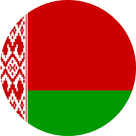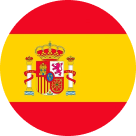Translation for the Netherlands, Belgium, Denmark
In the Netherlands, Belgium and Denmark, institutions often accept translations not only into Dutch, French or Danish, but also into English. In almost all cases, a notarized translation with a “double” apostille is required. Working with clients on a daily basis, we have noticed such a trend in relation to these 3 countries. Therefore, in order not to waste time and money, you can always clarify in advance all the requirements for documents or, reinsure yourself, put several apostilles without worrying about submitting documents.
What does “double” apostille mean?
This means that not only the original document, but also the translation itself must be legalized.
The paperwork procedure is as follows:
- Apostille is affixed to originals of documents
- Then notarized copies are made, if you do not want the translations to be filed by a notary directly onto the original document
- The original with apostille or notarized copies are translated into a foreign language (your choice: English or Dutch / French / Danish)
- Translation is notarized
- At the very end, the translation is apostilled
Please note that the apostille and the notary’s text on translation will be in Russian! Further, in the country of submission of documents, you may be asked to make an official additional translation of the apostille and the notary’s text, but this is not necessary. Very often this is not required.
Our company employs exclusively professional translators registered in the notary registers of Minsk. By contacting us, you will receive competent advice on translation and legalization of documents.
Our team has been working on the market for more than 10 years and has successfully completed more than 5000 projects on translation into foreign languages.
Our average query response time is 15 minutes. Please make your query more specific for us to make our response more swift.








